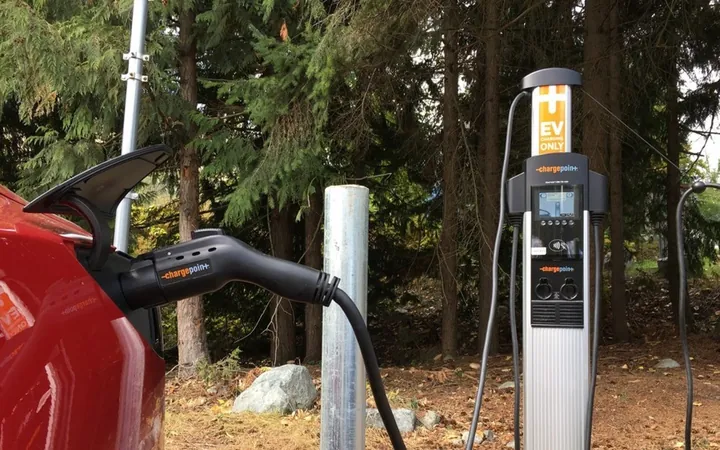
Electric Vehicle Charging Fees Banned by B.C. Tribunal: Strata Ordered to Refund Owner!
2024-09-28
Electric Vehicle Charging Fees Banned: A Landmark Decision
In a landmark decision, British Columbia’s Civil Resolution Tribunal has ruled that a strata in White Rock must stop enforcing fees for electric vehicle (EV) charging following a complaint by an EV owner. The tribunal not only dismissed the charging fees but also mandated the strata to refund the owner for the amounts paid since the fee implementation over eight months ago.
Background of the Case
The case, brought forth by John Craig Curtis, highlighted an ongoing dispute over what he deemed excessive charging fees. Curtis argued that the strata had overcharged him for using the EV charger installed in his designated parking stall, and he sought to have the monthly fee reduced and the overpayments refunded.
Strata’s Defense
The strata, defending its position, claimed that the fee was permissible under their bylaws and should be upheld. In a decision handed down on September 27 by tribunal member Alison Wake, it was revealed that the strata had recently introduced a $35 monthly user fee for EV charging during its annual general meeting.
Tribunal’s Findings
Curtis, however, countered that the fee was not only unreasonable, but did not adequately reflect his actual electricity consumption while charging his vehicle. Despite his assertion that the charger was located in his “privately owned” parking stall, the tribunal determined that the parking areas in question are classified as common property, meaning the strata holds ownership over them.
Regulatory Framework
The regulations governing strata properties stipulate that user fees should ideally be based on individual consumption rates. Nonetheless, Wake concluded that while the regulation allows for user fees to be based on a reasonable standard, it does not explicitly mandate individual consumption calculations. The strata’s argument for a fixed fee, rather than one derived from personal usage, was upheld as a possible approach, but the tribunal found the amount of $35 unjustified.
Decision and Impact
The strata failed to provide sufficient justification for how they arrived at the specific fee, leading to Wake’s decision that it was not reasonable or enforceable. She instructed the strata to cease enforcing the controversial user fee immediately, while also stating they could potentially set a new, reasonable fee based on market conditions or their operational costs.
Reimbursement to the Owner
Moreover, in a clear victory for Curtis, the tribunal ordered the strata to reimburse him for the entirety of the fees paid during the eight-month period, a move that underscores the tribunal's commitment to protecting the rights of EV owners.
Broader Implications
With the growing popularity of electric vehicles, this decision can set a precedent for future disputes regarding EV charging fees within strata properties, highlighting the importance of fairness and reasonable standards in the evolving landscape of electric mobility.
Future Considerations
As electric vehicle adoption continues to rise, this case raises an essential question: Are strata corporations obligated to adapt to the needs of EV owners, and how will similar issues be navigated in the future? Stay tuned as we explore the implications of this ruling further!









 Brasil (PT)
Brasil (PT)
 Canada (EN)
Canada (EN)
 Chile (ES)
Chile (ES)
 España (ES)
España (ES)
 France (FR)
France (FR)
 Hong Kong (EN)
Hong Kong (EN)
 Italia (IT)
Italia (IT)
 日本 (JA)
日本 (JA)
 Magyarország (HU)
Magyarország (HU)
 Norge (NO)
Norge (NO)
 Polska (PL)
Polska (PL)
 Schweiz (DE)
Schweiz (DE)
 Singapore (EN)
Singapore (EN)
 Sverige (SV)
Sverige (SV)
 Suomi (FI)
Suomi (FI)
 Türkiye (TR)
Türkiye (TR)